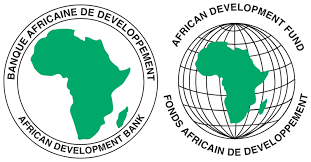AfDB’s Adaptation Benefits Mechanism Becomes First Non-Market Approach Registered on UNFCCC’s NMA Platform
The ABM serves as a new mechanism for mobilizing additional public and private sector finance to support climate change adaptation.

The African Development Bank (AfDB)’s Adaptation Benefits Mechanism (ABM), which has been piloted across Africa since 2019, has achieved a groundbreaking milestone by becoming the first non-market approach to be registered on the United Nations Framework Convention on Climate Change (UNFCCC)’s Non-Market Approaches (NMA) Platform. This landmark achievement solidifies the ABM as an innovative and leading tool for climate change adaptation and resilience efforts under the Paris Agreement.
Enhancing Climate Resilience through Innovative Finance
The ABM serves as a new mechanism for mobilizing additional public and private sector finance to support climate change adaptation. It plays a crucial role in helping host countries transition to low-carbon, climate-resilient, and sustainable development pathways. By certifying the value of resilience in terms of both benefits and incremental costs, the ABM accelerates adaptation efforts across Africa.
With its rigorous methodologies and independent verification, the ABM certifies quantified adaptation benefits while ensuring transparency. This data is critical for Paris Agreement reporting, tracking Sustainable Development Goals (SDGs), and informing Environmental, Social, and Governance (ESG) frameworks. Through Adaptation Benefits Supply Agreements, ABM allows project developers to monetize these certified benefits and gain access to capital markets, making adaptation costs more transparent and facilitating financial investment.
“It is time for adaptation finance to benefit from incentive mechanisms such as the ABM,” said Prof. Anthony Nyong, Director for Climate Change and Green Growth at the AfDB. “Tapping into new funding sources and engaging new actors through the ABM will scale up adaptation technologies and solutions, especially for communities that need them most.” Prof. Nyong also emphasized the importance of global cooperation in driving adaptation investment, calling for donors and investors to use ABM to de-risk investments for African project developers and unlock its full potential.
A Milestone for Africa’s Role in Global Climate Action
The ABM was submitted to the UNFCCC by Uganda during the COP29 climate conference held in Baku in 2024, with initial support from several African countries, including Nigeria, Kenya, Madagascar, Benin, Gambia, and Guinea. The submission also received backing from various international organizations, corporations, and government agencies, including the West-African Development Bank (BOAD), CIFOR-ICRAF, the Senegal Waste Management Authority (SONAGED), SLAMDAM B.V., and others.
Uganda’s national UNFCCC focal point for Article 6.8 (non-market approaches), Mr. Bob Natifu, expressed pride in the country’s involvement in the development of ABM. He emphasized that climate finance and action at all levels are essential for Uganda to become climate-proof and support its low-emission and resilient development goals. Natifu highlighted the importance of global ambition in tackling the growing list of adaptation needs that are critical for Africa’s sustainable future.
Broadening Participation and Strengthening International Cooperation
The registration of ABM on the UNFCCC platform will open doors for more countries and organizations to join the mechanism. The AfDB, as both a participant and a provider of financial, technological, and capacity-building support, plays a central role in developing and piloting the ABM. The bank's involvement reinforces its commitment to Africa's climate resilience and leadership in climate action.
The registration of ABM on the NMA platform, officially recorded in December 2024, sets a global precedent for non-market-based climate finance mechanisms. This achievement will not only enhance adaptation efforts across the African continent but also inspire other regions and stakeholders to pursue innovative solutions for climate change adaptation.
The full ABM submission is available on the NMA Platform at the following link: UNFCCC NMA Platform.
- READ MORE ON:
- African Development Bank
- Adaptation Benefits Mechanism
- UNFCCC










